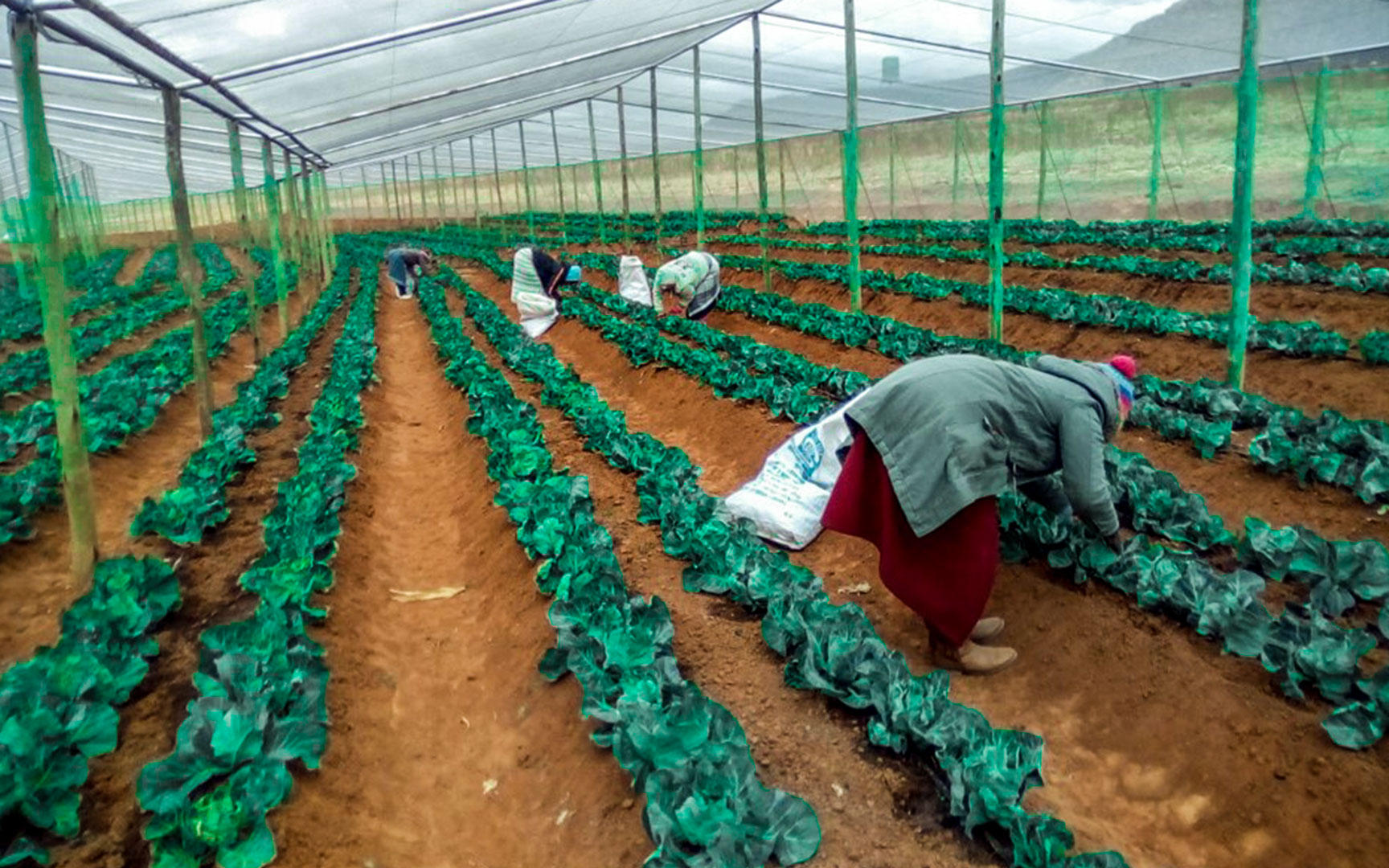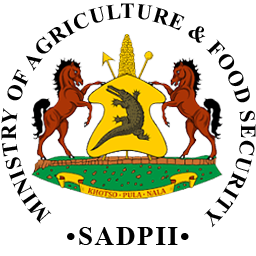
In the heart of Ha-Ntho village, Quthing district, lies Machabeng Farm, a now thriving agricultural enterprise that began from the ashes of personal loss. What started as a small orchard born out of retrenchment is today a beacon of hope, sustainability, and rural employment thanks to the transformative support of the Smallholder Agriculture Development Project II (SADP II).
From Retrenchment to Resilience
 In 2001, Makhaola Keneth Sibolane was one of thousands of Basotho miners retrenched from the South African mining sector. Stripped of his livelihood and faced with an uncertain future, he returned to Lesotho, uncertain about what would come next. On his journey back home from Welkom, South Africa, he impulsively bought 24 peach trees. That spontaneous decision became the foundation of what would one day grow into Machabeng Farm.
In 2001, Makhaola Keneth Sibolane was one of thousands of Basotho miners retrenched from the South African mining sector. Stripped of his livelihood and faced with an uncertain future, he returned to Lesotho, uncertain about what would come next. On his journey back home from Welkom, South Africa, he impulsively bought 24 peach trees. That spontaneous decision became the foundation of what would one day grow into Machabeng Farm.
“I was devastated. The mines were all I knew,” Sibolane recalls. But a Social Plan training program offered by the mining company planted a seed.
Initially, the small orchard flourished. But with early success came unforeseen challenges fruit theft by patrons from a nearby tavern Sibolane also operated, climate shocks, including extreme weather and bird damage, and water access issues, as he relied on bucket irrigation from the Qomoqomong River. Frustrated, Sibolane even cut down some of his trees. Yet, his resolve never faded.
Turning Point: The SADP II Breakthrough
In 2017, he discovered new peach cultivars that ripened at different times of the year. Slowly, his orchard grew to include 200 fruit trees (peaches, grapes, apples), however, irrigation remained a major bottleneck. Then came the SADP II grant opportunity. “I applied three times,” he says. “The first two times, I failed but I took their feedback seriously. I improved my business operations, and finally, on the third attempt under SADP II, I was approved.” This approval changed everything.
Game-Changing Support from SADP II
With support from SADP II, Machabeng Farm received a borehole with water system, ending dependence on costly manual irrigation, a shade net, protecting crops and trees from birds and hail, and training workshops in mixed farming, financial management, and sustainability. “The borehole alone was a game- changer. Now irrigation is reliable and affordable. The shade net protects our harvest. Farming finally became viable,” Sibolane explains.
Diversification: From Orchard to Mixed Farming
Guided by SADP II, Sibolane diversified into vegetable production, including cabbage and tomatoes, ensuring year-round income. By the year (2023–2024) he made a lot of money from vegetable that allowed to buy a new site to expand his production:
- 873 cabbages sold in September 2023 → M15,895
- Tomato sales (Nov–Feb) → M47,850
- Cabbage sales (same period) → M24,000
- Seedlings sold → M1,000
“Vegetables now carry us during off-season months for fruits,” he adds.
Creating Jobs, Feeding the Community
With expanding operations, Machabeng Farm employs 4 permanent workers, engages seasonal labour during peak periods, and moreover, he divided production into 3 core sections:
-
- Orchards: Peaches,
apples, grapes, apricots, - Vegetables: Shade-net
protected produce, - Open-field grains: For additional
income.
- Orchards: Peaches,
“Employment is one of the things I’m most proud of. This farm is no longer about just my survival it supports my entire community,” Sibolane beams.
Remaining Challenges and Ongoing Learning
Despite his progress, Sibolane acknowledges that farming remains a delicate balance, Water shortages persist in dry months, constant need for adaptation and learning. To stay ahead, he visits other farms, attends relevant workshops, and embraces trial and error as part of growth.
Conclusion: A Vision Realized
Looking ahead, Sibolane is expanding the orchard with 70 new trees, including 50 apples, acquiring more land to scale production, aiming to become a reliable year-round supplier in Quthing and beyond. “If I can feed Quthing and inspire more farmers like me, I will have achieved success.” What began with 24 peach trees and a dream after retrenchment has become a vibrant, resilient mixed farming enterprise thanks to persistence, learning, and targeted support from SADP II. “Farming is not easy it takes risk, resilience, and continuous learning. But with the right support, it can transform lives. For me, SADP II didn’t just give me equipment, it gave me a vision.”
“For me, SADP II didn’t just give me equipment, it gave me a vision.”



